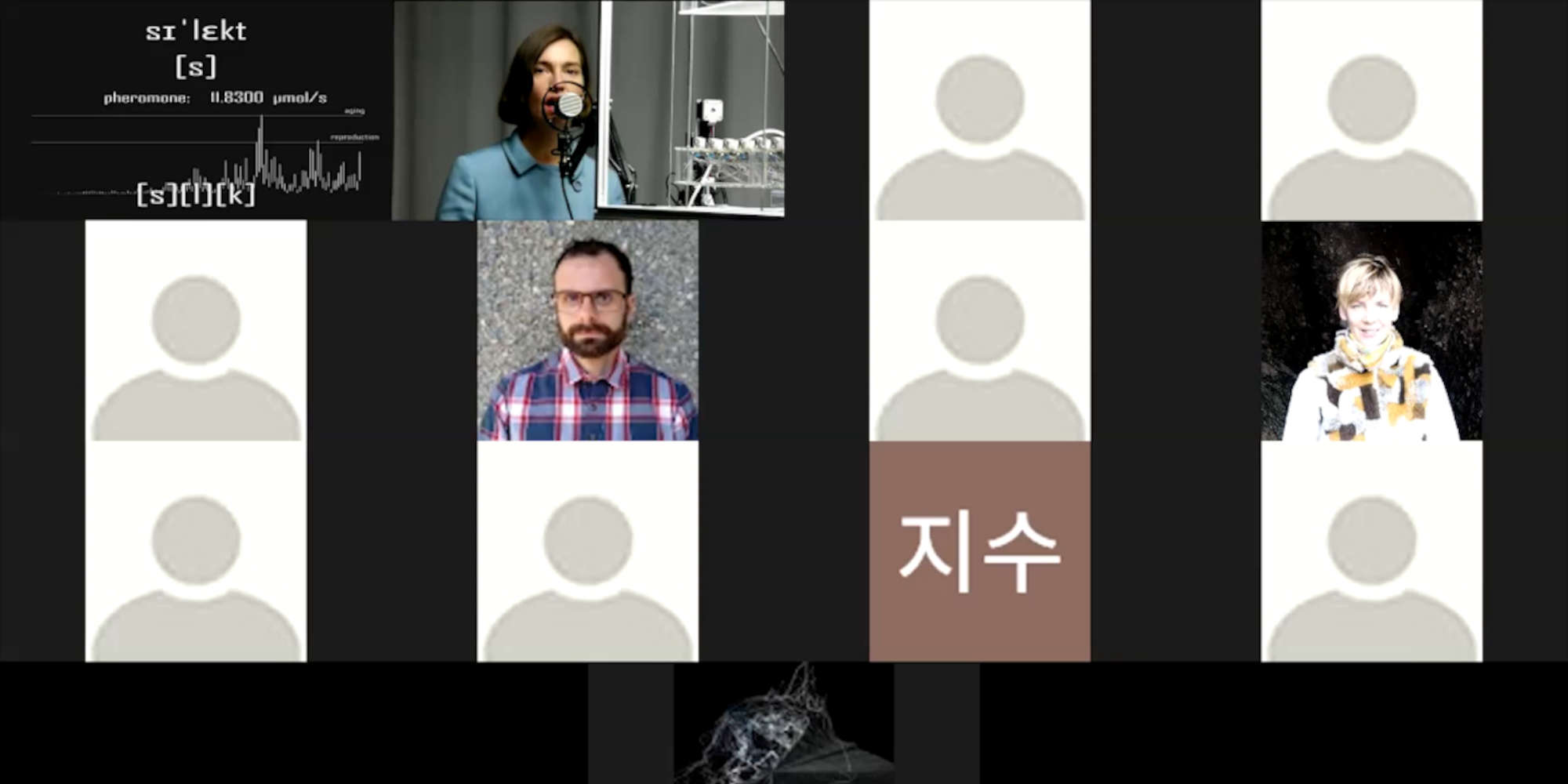Uncertain Co-Authors
There is not only a decline in linguistic and phonetic diversity but also in the diversity of the microbiomes. Both the monopolisation of languages and the spatial distancing in digital communication exacerbate this decline.
Spiess&Strecker’s performance counteracts the simultaneous decline of microbial and linguistic diversity by presenting a vision of language as an ecological process. The artists induce an interaction between spoken words and oral microbes that should benefit both the diversity of language, media communication and the microbiome.
In their performances the artists expose the oral microbiome harvested from a present interlocutor to a alphabetically orchestrated choir of zoom participants. The participants’ voice spectrograms drive pumps which add pheromones without a mate, until the microbiome recognizes and memorizes that a pheromone does not necessarily indicate the presence of a mate. This exposure generates an ecological adaptation of the oral flora which remains upright when exposed to the spectrograms after the pheromones had been phased out. The choir finally orchestrates an alphabet that has been rearranged by microbial ecology.
This transcendence of historically distinct ontologies not only reflects on the simultaneous decline of microbial and linguistic diversity but also challenges hybrid layers of media communication.
References
Performance Research 25:3:51-57 (2020)
Performance Research 25:5:122-128 (2020)
Credits
Jürgen Ropp, Ursula Rauter, Katherina T Zakravsky, Christoph Müller, Bozhidar Baltov, Mark Rinnerthaler, David Bosch, Stefan Gschroefl
Supported by
Medical University Vienna, Center for Public Health; Wien Kultur; Federal Ministry Republic of Austria Arts, Culture, Civil Service and Sport


